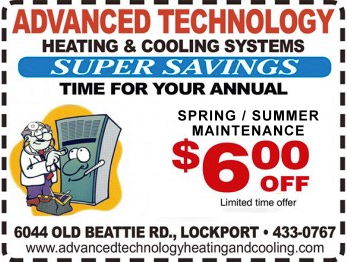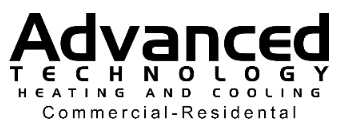Extend System Lifespan with Regular Maintenance

Regular maintenance is crucial for extending the life of your HVAC system, improving its efficiency, and that it provides a comfortable and safe environment. Depending on the specific setup and environment, some items might need more frequent attention and that's what we do best!
Regular, scheduled "tune-ups" by our certified technicians will identify and address minor issues before they become major problems, saving you time, money, and the hassle of unexpected breakdowns.
Monthly Checklist
- Inspect and Replace Air Filters: Check the air filters and replace them if they are dirty or clogged to ensure proper airflow and maintain indoor air quality.
- Clear Debris: Remove any debris, leaves, and dirt from around the outdoor unit to maintain unobstructed airflow
Quarterly Checklist
- Inspect Drainage Lines: Check the condensate drain and pump for blockages or leaks. Clean the drain lines to prevent water overflow and potential damage.
- Check Thermostat Settings: Ensure the thermostat is functioning correctly and keeps the building at the desired temperature.
- Inspect Fan Blades and Blowers: Check for proper operation and clean to improve efficiency.
Semi-Annual Checklist (Spring/Fall)
- Check Refrigerant Levels: Low levels might indicate a leak, which requires professional service.
- Clean Coils: Clean the evaporator and condenser coils to increase efficiency and prolong the life of your equipment.
- Lubricate Moving Parts: Reduce friction in motors and bearings by lubricating moving parts to decrease electricity use and wear.
- Inspect Belts and Pulleys: Check for wear and tear and replace if necessary to avoid breakdowns.
- Evaluate Control Box, Wiring, and Connections: Inspect for secure, undamaged connections and signs of wear or electrical hazards.
Annual Checklist
- Test HVAC System Operation: Run the system through a full operation cycle to ensure it operates smoothly and correctly.
- Inspect Ductwork for Leaks: Poorly sealed or insulated ducts can lead to significant air loss and inefficient system performance.
- Calibrate Thermostat: Ensure the thermostat is accurately reading and controlling the temperature.
- Assess Overall System Efficiency: Have a professional technician inspect the system to ensure it is operating at peak performance.
- Safety Checks: Make sure all safety systems are functioning properly, including fire and carbon monoxide detectors as related to the HVAC system.
| Login




